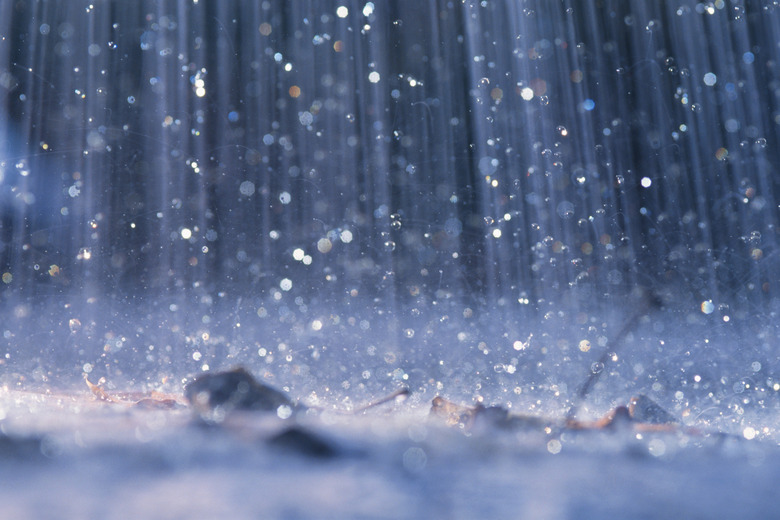Does Rain Increase Alkalinity?
Rain ranges from being slightly acidic to very acidic, so it tends to cause what it touches to become more acidic and less alkaline. Since alkalinity is defined as the opposite of acidity, when rain makes things more acidic, it also makes them less alkaline. Acidity and alkalinity are two sides of the same coin. Measuring how acidic a liquid is will also tell you how alkaline — or basic, which is a term that is synonymous with alkaline — that liquid is.
What is pH?
What is pH?
The acidity and alkalinity of a liquid is measured along what is called the pH scale. This scale ranges from 0 to 14, with the middle value of 7 being described as neutral — neither acidic nor alkaline. A pH value between 0 but less than 7 is considered acidic — the closer to 0, the more acidic a liquid is. A pH value above 7 and up to 14 is considered alkaline — the closer to 14, the more alkaline a liquid is. However, pH is calculated by measuring the same thing in either acidic or alkaline liquids. Liquids with low pHs (acidic) have many of what are called hydrogen ions — a hydrogen atom that has a positive charge. Liquids with high pHs (alkaline) have few hydrogen ions.
What is Alkalinity?
What is Alkalinity?
An alkaline solution is one that is not neutral like water but not acidic. An alkaline solution is also called a basic solution — though basic does not mean "simple." It is easiest to understand alkalinity by knowing some common household liquids that are alkaline in nature. These include baking soda, soap, bleach and oven cleaning fluid. It turns out that alkaline liquids are great at breaking up grease and fat. This is because they add electrical charges to oily, water-fearing molecules like fats. These charges make the oily molecules compatible with water, which washes the oils away.
What is Acid Rain?
What is Acid Rain?
Normal rain has a pH of 5.6 and is slightly acidic. This is because the carbon dioxide gas that is in the air reacts with water to form a weak acid called carbonic acid. Acid rain is rain that has a pH lower than 5.6. Some reports of acid rain showed that its pH can be around 2, which is like the pH of vinegar. Thus, when rain mixes with another liquid or soaks into a material, it causes the liquid to become more acidic. This is especially the case for acid rain. Thus, rain would not increase the alkalinity of a substance, but would do the opposite and decrease it.
What Causes Acid Rain?
What Causes Acid Rain?
Acid rain is the result of environmental pollution. Molecules called sulfur oxides and nitrogen oxides get into the atmosphere. They react with water to form sulfuric acid and nitric acid, both of which are stronger acids than the naturally occurring carbonic acid that is in the air. The main sources of sulfur oxides and nitrogen oxides include power plants that burn coal to produce electricity. Another major source is the exhaust fumes that come out of cars that burn gasoline. Industrial plants that melt ores to produce pure metals also release sulfur oxides into the air.
References
- Elmhurst College Chembook: pH Scale
- Science Buddies: Acids, Bases & the pH Scale
- Chemistry In Your Cupboard: Alkalis
- South Asian Journal of Tourism and Heritage: Science Behind Acid Rain – Analysis of Its Impacts and Advantages on Life and Heritage Structures
- Environmental Protection Agency: What Causes Acid Rain?
Cite This Article
MLA
Ph.D., David H. Nguyen,. "Does Rain Increase Alkalinity?" sciencing.com, https://www.sciencing.com/rain-increase-alkalinity-22396/. 24 April 2017.
APA
Ph.D., David H. Nguyen,. (2017, April 24). Does Rain Increase Alkalinity?. sciencing.com. Retrieved from https://www.sciencing.com/rain-increase-alkalinity-22396/
Chicago
Ph.D., David H. Nguyen,. Does Rain Increase Alkalinity? last modified March 24, 2022. https://www.sciencing.com/rain-increase-alkalinity-22396/
